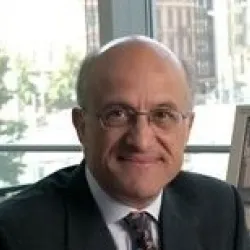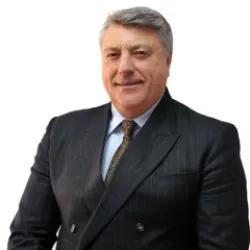Monetary Operations: Tools and Techniques for Policy Implementation 2022a
Monetary Operations: Tools and Techniques for Policy Implementation
Monetary Operations: Tools and Techniques for Policy Implementation
May 23 – 26
Live Content sessions held: 9am–1pm (EDT) | 2pm–6pm (BST) | 9pm–1am (SGT)
Chair: Francesco Papadia, former director general for market operations, European Central Bank
- How are central banks preparing for spillover effects from rising yields?
- How is climate change impacting monetary policy strategy, conduct and implementation?
- How will digital currencies impact monetary policy?
These are some of the main challenges facing those working in monetary operations in 2022.
The key in uncertain markets is to manage expectations: internally and externally, among markets and stakeholders. Yet the fast-paced nature of financial markets renders this communication far from straightforward.
This course is designed to equip central bankers to meet these challenges. Each day will feature three hours of expert-led Live Content to maximise the opportunity to share and learn. The chair will ensure participants have opportunities to network throughout the course, culminating in a workshop on practical implementation.
Agenda
Two weeks prior to your training course you will be emailed access to our content hub with course materials, including a trial to Central Banking if you are not already subscribed. There will be a combination of articles, reports and presentations that will contribute to two hours of preparation time for the live content. Presentations for the sessions will also be held here subject to the speaker approval.
Dealing with disruptive forces
14:00 – 14:30
Course introduction
Course introduction session led by the chair
14:00 - 14:30
- Introductions and welcome from the chairperson
- Overview of the training course
- Discussion of the delegate expectations
Francesco Papadia is chair of primary collateralised securities, chair of the selection panel of the Hellenic Financial Stability Fund, resident fellow of Bruegel and lectures at various universities. Between June 1998 and May 2012 he was director general for market operations at the European Central Bank. Before that he held different positions at Research Department and Foreign Department at the Bank of Italy. Between 1980 and 1983 he was economic advisor at the Directorate General for Economic and Financial Affairs of the European Commission. From 1974 to 1979 he served as economist in the Research Department of the Bank of Italy. He holds a degree in law from the University of Rome and did his postgraduate studies in economics at Istao, Ancona and at the London Business School. He has written numerous articles and books.
14:30 – 15:30
Monetary policy in 2022: leaning against or with the wind?
14:30 - 15:30
- Assessment of dilemmas, conflicts and trade-offs between monetary operations and the financial stability mandate
- Implications for central banks’ independence and accountability
- Overview of key factors and dynamics that will shape the framework for monetary policy operations in the years to come
- Discussion: future of monetary policy in the delegates’ home jurisdictions
Francesco Papadia is chair of Prime Collateralised Securities, chair of the Selection Panel of the Hellenic Financial Stability Fund, resident fellow of Bruegel and lectures at various Universities. Between June 1998 and May 2012 he was director general for Market Operations at the European Central Bank. Before that he held different positions at Research Department and Foreign Department of Banca d'Italia. Between 1980 and 1983 he was economic advisor at the Directorate General for Economic and Financial Affairs of the European Commission. From 1974 to 1979 he served as economist in the Research Department of Banca d'Italia. Francesco Papadia holds a degree in Law from the University of Rome. He did his postgraduate studies in Economics at Istao, Ancona and at the London Business School. He has published numerous articles and books.
15:30 – 15:45
Break
15:30 - 15:45
15:45 – 16:45
Climate risk and the ESG agenda: impact and implications for central banks
15:45 - 16:45
- Climate change as the emerging source of local and systemic instability
- The context for monetary policy strategy, conduct and implementation
- Overview of new roles and responsibilities for central banks in the areas of green finance and ESG
- Discussion: how are central banks tackling climate risk in the delegates’ home jurisdictions?
Born 1953, Mr. Grønn holds a graduate degree in economics (cand.oecon. 1979) from the University of Oslo. Work experience since 1980 includes vfarious positions at Norges Bank, including Director of International Department, Director of Statistics Department, and Special Advisor to the Governor. Mr. Grønn spent altogether eight years at IMF’s Executive Board in Washington DC, as Senior Advisor (1989-1992), Alternate Executive Director (2011-2013) and Executive Director (2013-2016), as well as one year at the ECB in Frankfurt as national central bank expert, monetary policy (2005-2006). He retired from his position at Norges Bank in July 2021, and continued as a consultant at the Bank on a part-time basis until December 2023.
16:45 – 17:00
Break
16:45 - 17:00
17:00 – 18:00
Digital currencies and monetary policy: implications for monetary policy, central banks and central banking
17:00 - 18:00
- Taxonomy of Central Bank Digital Currencies (CBDCs), stable coins and crypto assets
- Impact and implications of CBDCs for markets and portfolios
- Opportunities and risks of CBDCs for monetary policy implementation
- Discussion: will Covid-19 speed the transition to digital currencies?
Currently a Research Advisor at the Bank of Canada, Mohammad joined the Bank as a Senior Economist after he received his Ph.D. in Economics from the Pennsylvania State University in 2015. Prior to that, he received his B.Sc. in Electrical Engineering and M.Sc. in Economics from Sharif University of Technology, Iran, in 2007 and 2009, respectively.
His research interests can be classified into two broad categories: monetary economics and search theory. On monetary economics, he studies new developments in the field of electronic money and payments and explores how introducing a central bank digital currency (CBDC) can affect the implementation and transmission of monetary policy as well as the efficiency and stability of financial system. On search theory, he explores the role of information asymmetries in markets with search frictions, with applications to inter-bank, labor and over-the-counter markets. His work has been published in academic journals such as Journal of Economic Theory, International Economic Review, Journal of Economic Dynamics and Control and European Economic Review.
Building an effective framework for policy implementation
14:00 – 15:00
The new toolkit for optimising monetary policy operations
14:00 - 15:00
- Evolution of approaches for managing domestic liquidity and monetary policy operations
- Frameworks for tackling challenges at both strategic and day-to-day level
- Key features of the modern monetary operations toolkit
- Case study: monetary operations framework at the European Central Bank
Francesco Papadia is chair of Prime Collateralised Securities, chair of the Selection Panel of the Hellenic Financial Stability Fund, resident fellow of Bruegel and lectures at various Universities. Between June 1998 and May 2012 he was director general for Market Operations at the European Central Bank. Before that he held different positions at Research Department and Foreign Department of Banca d'Italia. Between 1980 and 1983 he was economic advisor at the Directorate General for Economic and Financial Affairs of the European Commission. From 1974 to 1979 he served as economist in the Research Department of Banca d'Italia. Francesco Papadia holds a degree in Law from the University of Rome. He did his postgraduate studies in Economics at Istao, Ancona and at the London Business School. He has published numerous articles and books.
15:00 – 15:15
Break
15:00 - 15:15
15:15 – 16:15
Liquidity management in different regimes
15:15 - 16:15
- Liquidity management and exchange rate regime: different means and different goals
- Corridor vs. floor systems: implications for liquidity management and forecasting
- Market volatility and the regulatory demand for liquidity
- Liquidity forecasting tools and techniques
Miklos Vari is currently a Research Economist in the Bank of France monetary policy division, and a consultant for the IMF monetary and capital market department. He was previously an analyst in the ECB’s Directorate-General of market operations and an Economist at the International Monetary Fund. He has written policy papers and published academic articles in leading economics and finance economic journals on the impact of central bank’s market interventions. Miklos hold a PhD from the Paris School of Economics.
16:15 – 16:45
Networking break
An opportunity to share experiences with your fellow participants.
16:15 - 16:45
16:45 – 17:45
International monetary policy spillovers and responses
16:45 - 17:45
- Examples of monetary policy spillovers from advanced to emerging market economies
- Overview of measures taken in emerging markets in response to these effects
- Spillover implications of the Fed monetary policy tightening
- Discussion: how do monetary policy spillovers get tackled in the delegates’ home jurisdictions?
Emerging risks and opportunities
14:00 – 15:00
The balancing act of policy solvency
14:00 - 15:00
- The concept of “solvency” for central banks
- Consequences of financial weakness
- Distribution mechanisms and recapitalization
- Assessing capital adequacy – a forward looking approach
Freyr Hermannsson is an experienced central banker and has worked with a dozen central banks and United Nations agencies since the turn of the century. He is an independent advisor focusing on sovereign asset and liability management, particularly balance sheet management and central bank policy solvency, reserve management and public debt management. He has hands-on knowledge of monetary and exchange operations, FX markets development, exchange rate regimes, FX regulations (incl. capital controls) and capital account liberalization, central banking recapitalization and related accounting issues.
Mr. Hermannsson initially joined the Central Bank of Iceland in 2000 and after several years in the private sector was drafted back into the central bank in Iceland’s 2008 financial crisis where he served as Head of Treasury. He led international reserves management, implemented central bank open market operations, negotiated government debt transactions, developed capital controls, and worked on crisis prevention and management during and after the crisis of 2008.
A mathematician by education, he holds a M.Sc. from Columbia University in Operation Research and a B.Sc. in Mathematics from the University of Gothenburg, Sweden. He has lectured on the mathematics and economics of financial markets as an Adjunct Lecturer at the Faculty of Economics of the University of Iceland.
15:00 – 15:15
Break
15:00 - 15:15
15:15 – 16:15
Central bank asset purchases: lessons from recent global experience
15:15 - 16:15
- Motivations for launching asset purchase programmes
- Key components of programmes and realistic goals
- Risk and opportunities, in particular fiscal dominance and debt monetisation
- Key principles for central banks going forward
Simon Gray
Former regional advisor for Africa, the Middle East and Central Asia
International Monetary Fund
Simon Gray worked at the Bank of England for some 27 years before joining the IMF in 2007. Simon has recently retired, but over the past 25 years he has worked with central banks around the globe, predominantly on monetary operations framework and FX issues. He has written widely on these topics, both while in the Bank of England’s CCBS, and at the IMF, including most recently an IMF Working Paper on unifying exchange rates in countries where parallel exchange rate markets have emerged; and an IMF Departmental Paper on central bank asset purchases. Simon has also worked on a number of FSAPs, most recently leading the FSAP for China in 2017.
16:15 – 16:45
Networking break
16:15 - 16:45
16:45 – 17:45
What (not) to say to markets, when and how?
16:45 - 17:45
- The role of communication with markets in monetary policy design and implementation
- Forward guidance as a policy tool
- Examples of frameworks and processes ensuring that central banks’ messages are consistent and context-sensitive
- Practical examples: how to communicate in time of market stress or volatility
Aleksi Paavola works as a Market Analyst at the Bank of Finland, focusing mostly on financial market analysis and design and implementation of different monetary policy measures. He has worked in various positions at the Bank of Finland since 2013. He is currently finishing a PhD in Economics at Aalto University and holds a MSc Economics from University College London and a Bachelor’s degree in Economics from the University of Helsinki.
The future of monetary policy
15:00 – 16:00
US inflation and spillovers to other countries
13:00 - 14:00
- Recent developments on US inflation
- What is an appropriate measure of core inflation?
- Higher inflation in the core countries and tighter monetary policy could have spillovers to other economies
- How to measure spillovers? Could macroeconomic policies in the core have microeconomic implications?
Elisa Vilorio de Painter holds a PhD in Economics from Florida International University (FIU). She holds a Master of Science in Finance and a Postgraduate degree in Risk Management from the Instituit D'administration d'enterprise (IAE) Aix en Provence in France, and is a Magna Cum Laude Industrial Engineer from the Pontificia Universidad Católica Madre y Maestra (PUCMM). She is also a former scholar of the prestigious Fulbright Program of the United States Embassy and the scholarship program of the French Embassy.
She has worked at the Central Bank of the Dominican Republic since 2007, and currently holds the position of Advisor to the Governor. She began her career in the Treasury Department where she held the positions of Technical Consultant, Deputy Director of International Reserves Management, Head of the Risk and Financial Analysis Division, and Investment Manager of the International Reserves portfolio. For more than a decade, she was responsible for the design and execution of the investment strategy of the International Reserves portfolio, quantitative analysis, risk management, and strategic asset allocation. In turn, she participated in official advisory missions to other Central Banks within the Reserves Advisory Management Program (RAMP) of the World Bank.
Her areas of professional expertise are: Financial Economics, International Economics, Applied Econometrics and Finance. She has presented her research on macroeconomics at different annual meetings of the American Economic Association (AEA), the Southern Economic Association (SEA), the Midwest Economic Association (MEA), the Eastern Economic Association (EEA), the International Atlantic Economic Society (IAES) and the International Trade and Finance Association (ITFA). She has also published in various Journals related to the active management of an International Reserves portfolio, hedging strategies using interest rate futures and the foreign exchange derivatives market.
She has been an undergraduate professor and researcher at Florida International University (FIU). She also taught in the Master's in Financial Management and MBA in Risk and Treasury Management at the Pontificia Universidad Católica Madre y Maestra.
16:00 – 17:00
What next for central bank balance sheets?
15:15 - 16:15
- Quantitative easing: a remedy for liquidity problems
- Benefits and drawback of the shift to a floor system of money market operations
- Key components of quantitative easing as a generalised expansionary policy
- Discussion: the future of central bank balance sheets and money market operations
17:00 – 17:30
Closing remarks and delegate action plans
Concluding session led by the chair
16:30 - 17:15
- Summary of the course
- Discussion of the observed trends and case studies
- Application of learning points in the delegates’ home organisations
- Preparation of action points
Francesco Papadia is chair of primary collateralised securities, chair of the selection panel of the Hellenic Financial Stability Fund, resident fellow of Bruegel and lectures at various universities. Between June 1998 and May 2012 he was director general for market operations at the European Central Bank. Before that he held different positions at Research Department and Foreign Department at the Bank of Italy. Between 1980 and 1983 he was economic advisor at the Directorate General for Economic and Financial Affairs of the European Commission. From 1974 to 1979 he served as economist in the Research Department of the Bank of Italy. He holds a degree in law from the University of Rome and did his postgraduate studies in economics at Istao, Ancona and at the London Business School. He has written numerous articles and books.
Learning outcomes
At the conclusion of the training, participants will be able to:
- Understand the impact rising yields will have on international and domestic markets
- Assess the implications and opportunities that CBDCs have on monetary policy
- Tackle the impacts that climate risk has on monetary policy
- Create liquidity forecasts and optimise the operating framework
- Gain insight into new tools and techniques for managing liquidity
Chair

Francesco Papadia
Former director general for market operations
European Central Bank
Francesco Papadia is chair of primary collateralised securities, chair of the selection panel of the Hellenic Financial Stability Fund, resident fellow of Bruegel and lectures at various universities. Between June 1998 and May 2012 he was director general for market operations at the European Central Bank. Before that he held different positions at Research Department and Foreign Department at the Bank of Italy. Between 1980 and 1983 he was economic advisor at the Directorate General for Economic and Financial Affairs of the European Commission. From 1974 to 1979 he served as economist in the Research Department of the Bank of Italy. He holds a degree in law from the University of Rome and did his postgraduate studies in economics at Istao, Ancona and at the London Business School. He has written numerous articles and books.








